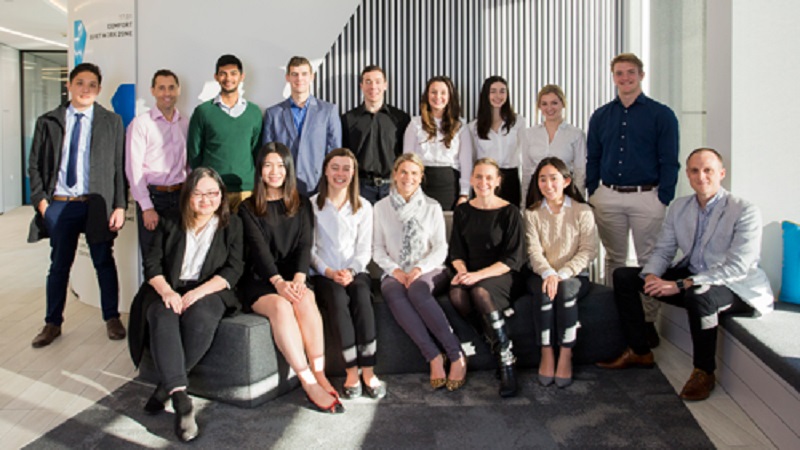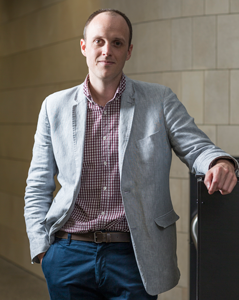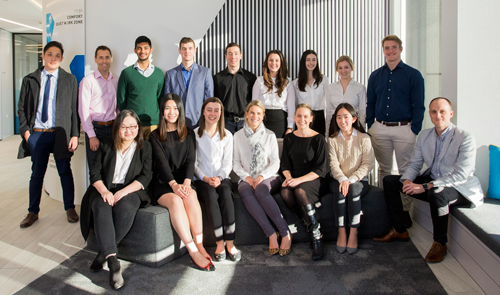Steven Hitchcock

The future of work for Gen Y & Z

In March this year, I stood in front of 1500 first-semester undergraduate business students and told them that there was no way of knowing what the world of business would look like by the time they graduated.
I told my students that we can look closely at megatrends shaping the world, we can look at rises and falls in projections, we can even look at what entrepreneurial endeavours are gaining traction, and what large organisations are faltering. I cautioned them, however, that even if we did all of the above, using only the best data, we would still only be guessing. Unfortunately, there is no way of knowing with certainty about a thing, until that thing is already happening.
For aspiring leaders, this can be an unsettling introduction to business. Many of our students desperately want to know ‘the answer’. Many want to know the best solution. However, we would be doing our students a disservice if we tried to prepare them for tomorrow’s jobs by giving them today’s answers and solutions. And so, while we can cover the fundamentals and help them to garner a sense of the landscape, we also have to start them on the path of problem solving and critical thinking in the face of a ‘volatile, uncertain, complex and ambiguous’ (VUCA) world.

So how do we prepare the next generation for the workforce? I think the first big thing is to help our young leaders to become comfortable with complexity. It’s important to remember that our university students have come through a high school system which has trained them to think that if they apply the right solution to the right question, they will get the right answer every time. This system works well in creating a standardised testing system for high-school students; however, it does not prepare them to deal with multifaceted problems in unfamiliar settings.
We need to take things a step further, and I believe business schools today play a crucial role in equipping the next generation for an unknown future.In response to a changing world, the University of Sydney has reimagined undergraduate study – the way we teach and the way students learn – so that every student graduates with the confidence and the ability to think critically, collaborate productively and influence the world.
At the Business School, our new first-year core unit, The Future of Business, focuses on teaching business in a way that is grounded in the real world. We present our students with a problem, and we give them the tools to try and find a solution. But we don’t stop there. We then ask our students to critique their own solutions, figure out what might go wrong and plan for those scenarios.
Over the semester, as they practise this process, we complicate it by adding in new data or presenting new issues halfway through a challenge. Sometimes we put students in a situation where the information they have is insufficient, so they learn to identify such gaps and recognise when they need help.

This past semester saw us collaborate with multinational giant Unilever in delivering this unit. We asked students to find a solution to a problem the company’s Lipton brand is currently facing, culminating in the finalist teams pitching their ideas to Unilever. What we saw in the quality of the presentations were some amazing ideas that impressed both our teaching staff and our Unilever partners. It was also an incredible opportunity to help the students realise what they can do already in their first year.
We want our emerging leaders to succeed – not just at University but in the world of work too. We know it’s a competitive environment for young professionals, and we know that organisations today are picking from the best and the brightest. So we must equip our future leaders with the ability to think critically and to evaluate new situations, new information and new environments. We want them to develop the confidence to take challenges head on, paired with the ability to recognise the limits of their abilities and knowledge.
So while we may not be able to teach the next generation what the world will look like, we can teach them how to approach it. In the few years we have with them at university, we prepare our students to arrive in organisations and hit the ground running – to pick up new tools and respond to an ever-changing world of work.
This article was originally published within The Sydney University Business School’s Alumni Magazine. Read the original article.
Steven Hitchcock recently completed his PhD in Organizational Communication at Arizona State University. Steven’s research examines the discourse of, and practice surrounding, aged and generational narratives in the workplace.
Share
We believe in open and honest access to knowledge.
We use a Creative Commons Attribution NoDerivatives licence for our articles and podcasts, so you can republish them for free, online or in print.







